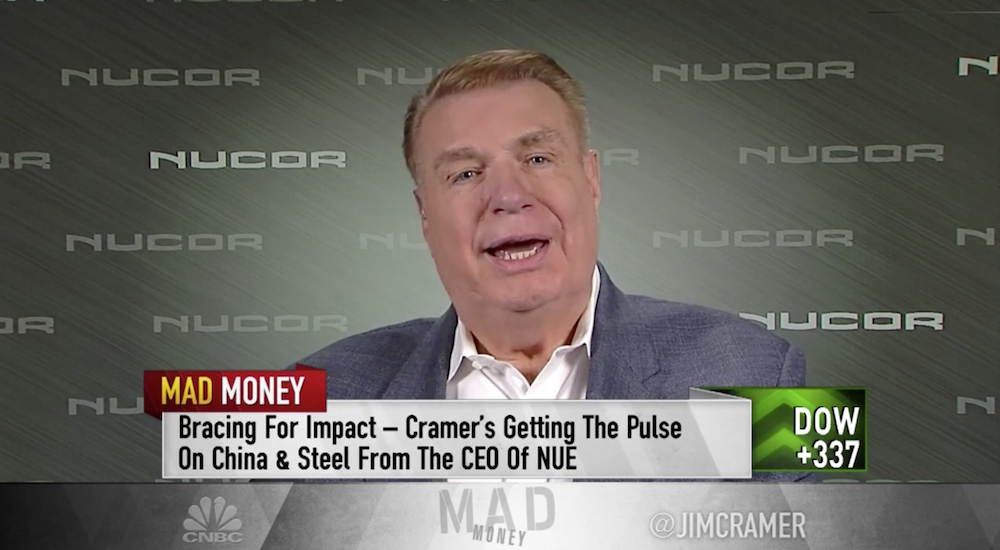If you ask the CEO of Nucor, the largest steel producer in the United States, he’ll tell you that President Donald Trump’s plans to put tariffs on steel and aluminum imports are fair game.
[Elizabeth Gurdus | March 5, 2018 | CNBC]
In a Monday interview on “Mad Money,” Nucor CEO John Ferriola pushed back against arguments that the tariffs are unfair to U.S. trading partners and allies.
“I struggle with that concept,” Ferriola told CNBC’s Jim Cramer. “Please bear in mind that particularly the European Union, but most countries in the world, have a 25 percent or greater VAT, value-added tax, on products going into their countries from the United States. So if we impose a 25 percent tariff, all we are doing is treating them exactly as they treat us.”
Ferriola pointed out that since 1985, one-third of the U.S. steel industry has been wiped out. This is partly caused by countries like China “dumping” steel, or keeping prices artificially low by flooding the market with supply.
In 2017, what Ferriola called “illegally” and “unfairly” traded imports were 15 percent higher than they were in 2016, even though they were openly under investigation by the U.S. government.
Those imports ended up accounting for 27 percent of the steel market in 2017, Ferriola said.
“We’re simply leveling the playing field, treating them the way that they have been treating us for over 30 years,” he told Cramer.
The CEO singled out China as a particularly “bad actor,” saying that its overcapacity amounts to about three times of all the steel consumed in the United States.
“You see a steel industry that is being decimated in the United States,” Ferriola told Cramer. “If that continues, I don’t know how anyone can argue that we would be able to have a strong national defense.”
Without a strong domestic steel industry, the U.S. military could risk jeopardizing its defenses by building tanks and other weapons using cheaply made foreign steel, the CEO argued.
But Ferriola emphasized that the U.S. military isn’t the only end market affected by steel dumping.
“You also have to have a strong steel industry to have strong infrastructure,” he said. “Strong infrastructure creates a strong economy; a strong economy ensures a strong national defense.”
The Nucor chief also addressed concerns about prices rising as a result of the tariffs. The cost of producing an average, $36,000 car would go up by about $160 — less than ½ of 1 percent, he said. The impact on a can of beer would be even smaller — less than a penny per can.
Ferriola also reminded Cramer that even though Nucor has managed to stay in business and remain profitable in the face of stifling foreign competition, enforcing these trade laws would make the hard times less painful for what’s left of the steel producers.
“We’re in a very, very cyclical business,” the CEO said. “We’re at a good time in the cycle right now, but I would suggest that you go back and look at the tougher years in 2009-2010 and see how much of a struggle it’s been for the entire industry during those down cycles.”













